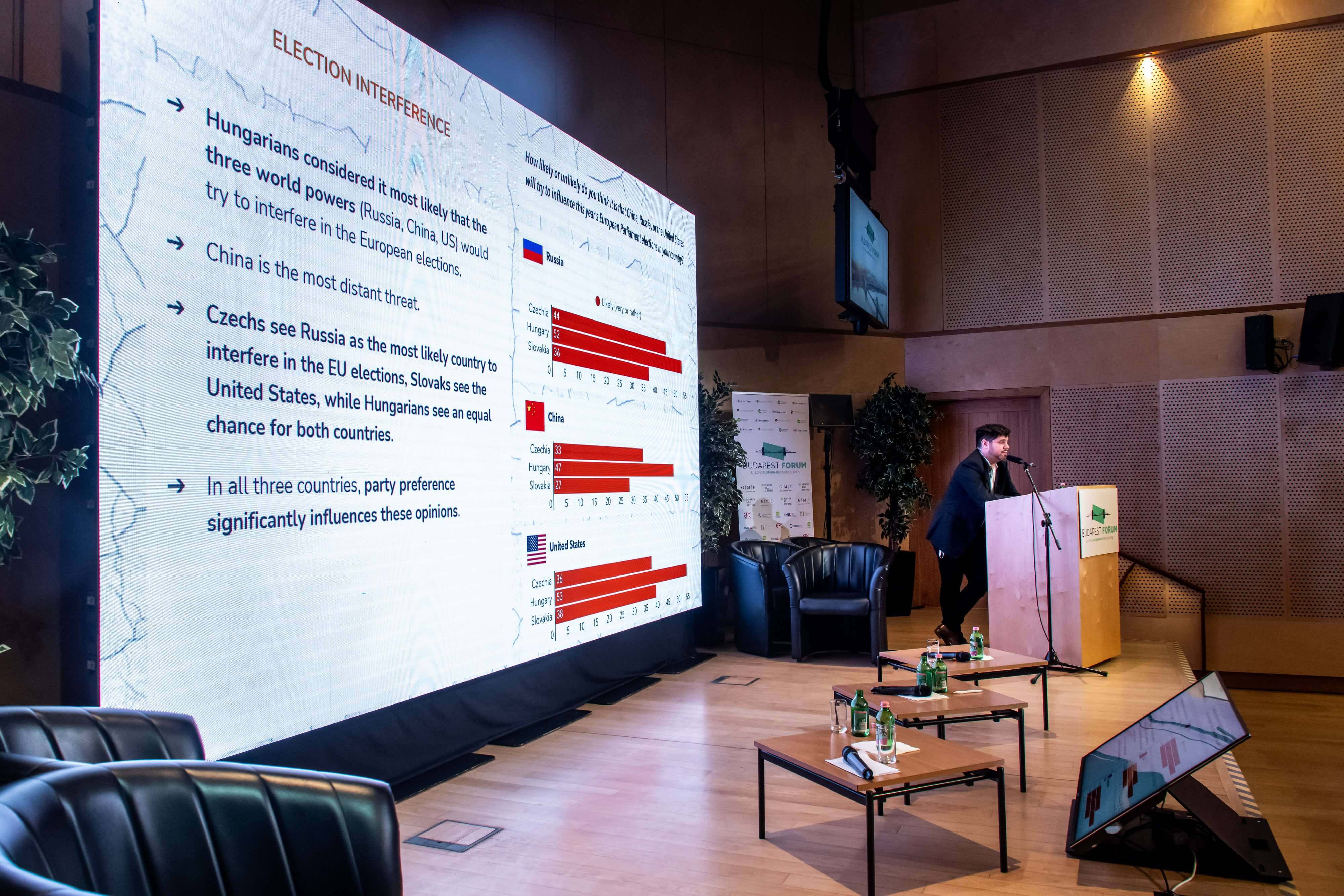Attitudes Towards Foreign Policy and Authoritarian Superpowers, Impact of Disinformation, Polarization and Tribalism
2024-09-26
Presentation of the research by Richárd Demény – Analyst, Political Capital

Main takeaways:
- A significant part of Hungarian society is susceptible to conspiracy theories, including the Great Replacement theory, while Czechs and Slovaks are more immune.
- There is a strong correlation between susceptibility to certain conspiracy theories and disinformation narratives.
- Regarding factual relativism, faith in facts and objective reality is eroding in all three countries, especially in Hungary, where distrust in the media is at a record high. The majority of Slovaks, Czechs, and Hungarians question the veracity of information reported as facts
- This epistemological skepticism and pessimism provide a breeding ground for the spread of disinformation and conspiracy theories.
- Hungarians considered it most likely that the three world powers, Russia, China, and the US, would try to interfere in the elections. Czechs see Russia, and Slovaks see the US as the biggest threat. China remains the most distant threat. Party preferences significantly influence these opinions in all three countries.
- With regard to the challenges facing the EU, the issue of external migration is identified as a significant concern in all three countries.
- When it comes to the Russian aggression against Ukraine, around a third of Slovak, Hungarian, and Czech believe that the EU should support Ukraine militarily. Instead, they would be more in favor of non-military support. Ultimately, Ukraine's fatigue is visible.
- The Czechs are the most in favor of extending the sanctions policy against Russia, while the Hungarians are the least.
- The Hungarian electorate is more politically polarized than its counterparts in the Czech Republic and Slovakia.
- The Manichean thinking, which sees politics in very black and white terms, as a battle between good and evil, characterizes the three societies to a similar degree.
- Slovaks and Hungarians believe the general social, political, and economic situation is the best in the Czech Republic.
- The situation in Hungary is perceived less positively in the other two countries, especially by the Czechs.
Copyright 2026. Political Capital Policy Research and Consulting Institute, all rights reserved.

